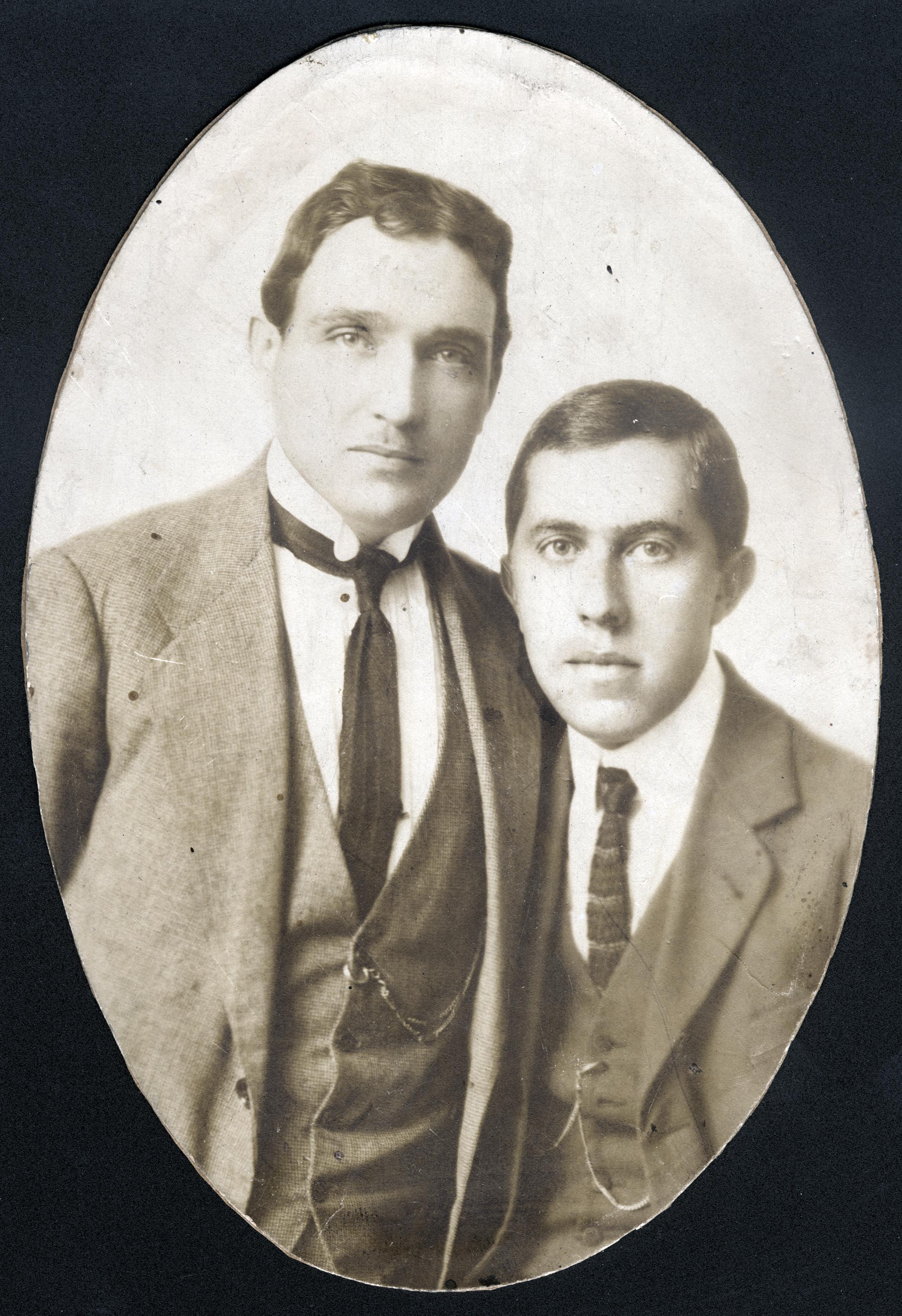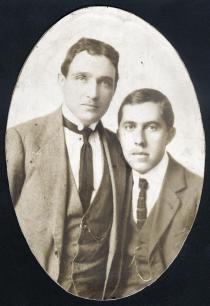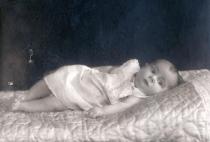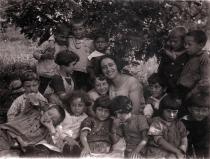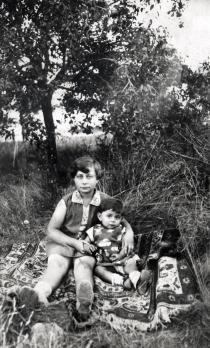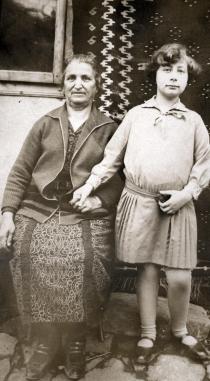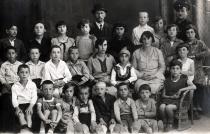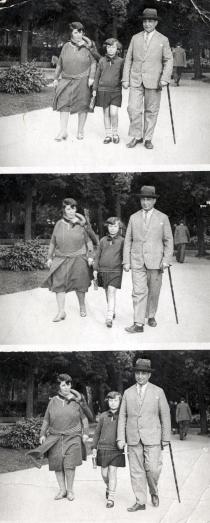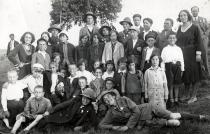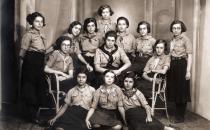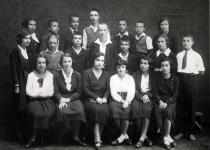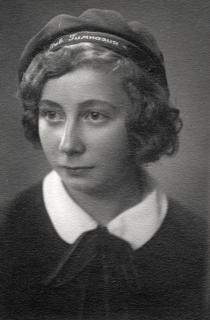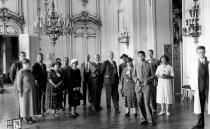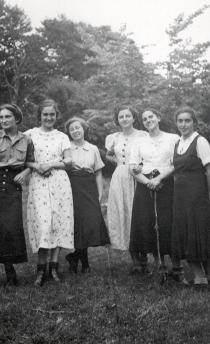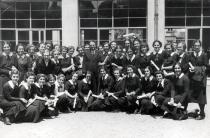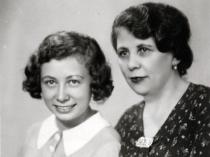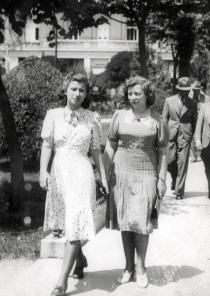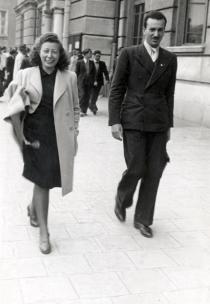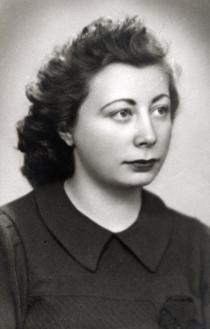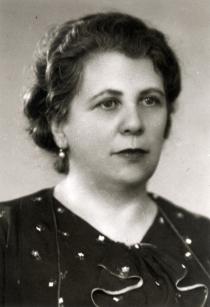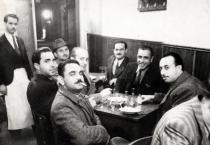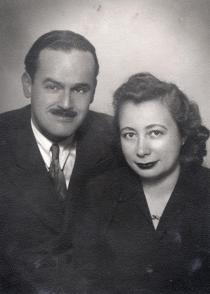Here is my father Yosif Behar with one of his brothers - I cannot remember his name. The photo was taken in 1919.
My father was born in Karnobat in 1888. He studied in Karnobat till the third grade [the seventh grade of elementary school at present]. Everything was just fine but where could he continue studying? In Plovdiv, of course. So, he was taken to Plovdiv. There's a big and very famous secondary school there. Samodumov and Barutchiyski [eminent Bulgarian intellectuals] taught my father there: these are men who later became professors. He received a very solid education. He studied math really fundamentally, descriptive geometry, rhetoric and Old Bulgarian. He could recite Chernorizetz Hrabar and Cicero's speeches by heart. He was very keen on math but he could also draw very well and could write in calligraphy: they studied calligraphy at school. When we had to make chemistry tables in secondary school, he made them for me and they were always hung on the classroom wall. He sang lots of [Bulgarian] folk songs. He didn't study Hebrew at all. But he knew some prayers by heart and also their translations.
After he graduated, he did some accounting courses. When he first went to Plovdiv he was 13. He wanted to go back home. He left school and walked from Plovdiv to Karnobat on foot, because he didn't have any money. But after that he returned to Plovdiv and continued studying. My father often said, 'We, our family, eat boza and halva in Plovdiv.' That was the cheapest food and the rest was expensive. He said, 'We didn't know what toothpaste was then. We baked bread until it became black, then we pounded it and brushed our teeth with this paste.' And he died without a tooth pulled out.
After he finished his accounting courses, he came back to Karnobat. He was accepted as an erudite man. My father had been in a non-commissioned officers' school. He didn't take part in the World War I although he was some sort of a commander. After he graduated from school, he was told that he had a valvular disease and wasn't fit for active service. So, he was never sent to the front. He spent all his life with this disease. He had a wonderful handwriting, like a calligrapher. He became a clerk at the Dimitrov brothers'. They were businessmen. He had to go around the villages and market their goods. Then he bought a horse and rode around the villages; I don't know if he had a cart. He was really in the circle of the Karnobat intellectuals because he had graduated from secondary school.
